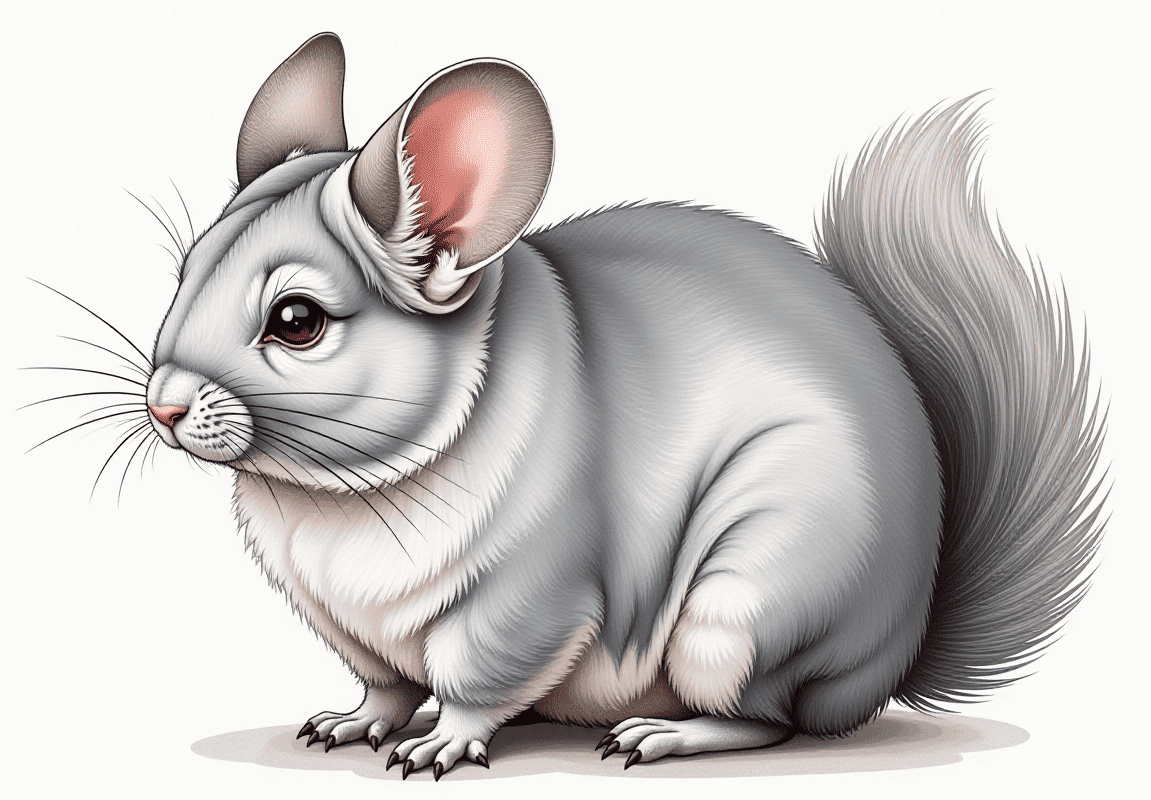How Chinchillas Show Affection
The Problem: Do Chinchillas Really Show Affection?
Many people believe that small pets, especially rodents, don’t form emotional bonds with their owners. If you’re new to owning a chinchilla, you might wonder whether these fluffy creatures actually care about you or if they just tolerate your presence for food and shelter.
The Agitation: The Struggle of Understanding Chinchilla Behavior
Unlike dogs or cats, chinchillas don’t express affection in obvious ways. They won’t wag their tails or purr in your lap. Instead, their communication is more subtle, leaving many owners confused or even frustrated when their pet doesn’t seem to respond to their efforts. Misinterpreting their behaviors can lead to unnecessary disappointment, making some people feel like their chinchilla is indifferent.
Chinchillas are prey animals by nature, which means they instinctively avoid direct contact until they feel completely secure. This survival instinct makes it challenging for new owners to recognize affectionate behavior. However, once a chinchilla trusts you, it will begin to display affection in unique ways that may not be immediately obvious.
The Solution: Recognizing the Signs of Chinchilla Affection
So, how do chinchillas show affection? Here are some key behaviors that indicate your chinchilla trusts and cares for you:

- Following You Around – If your chinchilla moves toward you instead of running away, it’s a sign they feel safe and enjoy your presence.
- Gentle Nibbles or Licks – A chinchilla may give you soft nibbles or even licks, which is their way of grooming you—something they do with bonded companions.
- Jumping on You – If your chinchilla hops onto your lap or shoulders, it’s a clear indication of trust and comfort.
- Cuddling in Their Own Way – While they may not love prolonged handling, a chinchilla that willingly sits near you is showing its version of affection.
- Excited Chirps or Soft Noises – Happy vocalizations, such as soft chirps, can indicate contentment and attachment.
- Bringing You Items – Some chinchillas may pick up objects and bring them toward you, much like an offering.
- Sleeping Near You – If your chinchilla naps while you’re nearby, it’s a huge sign of trust since they are naturally cautious animals.
- Playful Behavior – A chinchilla that jumps around energetically in your presence, sometimes referred to as “popcorning,” is showing happiness and excitement.
- Curious Exploration – If your chinchilla explores your hand or climbs onto you instead of running away, it means they trust you and enjoy your company.
How to Encourage Affectionate Behavior
Building a bond with your chinchilla takes patience and consistency. Here are some tips to encourage affectionate behavior:

- Give them space: Let your chinchilla come to you rather than forcing interaction.
- Use treats strategically: Hand-feeding treats can create positive associations with your presence.
- Be consistent: Spend time near their cage daily so they get used to your voice and scent.
- Respect their boundaries: If your chinchilla shows signs of stress, give them time to relax.
- Engage in playtime: Allow supervised out-of-cage time to build trust through interaction.
Conclusion
Understanding how chinchillas show affection helps strengthen the bond between you and your pet. By recognizing their unique ways of expressing care, you can appreciate their trust and companionship even more. So, if you’ve ever wondered, how do chinchillas show affection?, now you know the subtle yet meaningful ways these little creatures express their love.
Frequently Asked Questions
Do chinchillas recognize their owners?
Yes! Chinchillas recognize their owners through scent, voice, and routine interactions. Over time, they associate their owner with safety and positive experiences.
Do chinchillas like being petted?
Some do, but most prefer short, gentle touches rather than prolonged petting due to their delicate fur.
How long does it take for a chinchilla to bond with its owner?
It depends on the individual chinchilla, but trust-building can take a few weeks to several months.
What sounds do chinchillas make when they are happy?
Soft chirps or cooing sounds are signs of contentment, while excited hopping can also indicate happiness.
Can chinchillas get lonely?
Yes, chinchillas are social animals. If you have only one, ensure you spend quality time with them daily to prevent loneliness.
